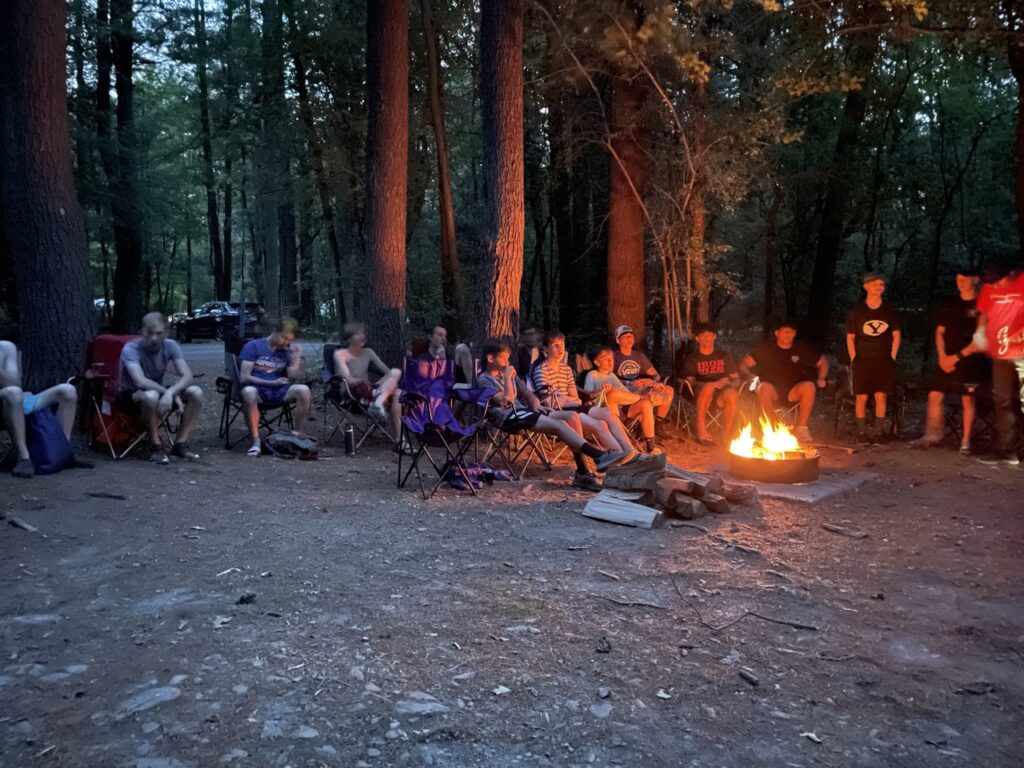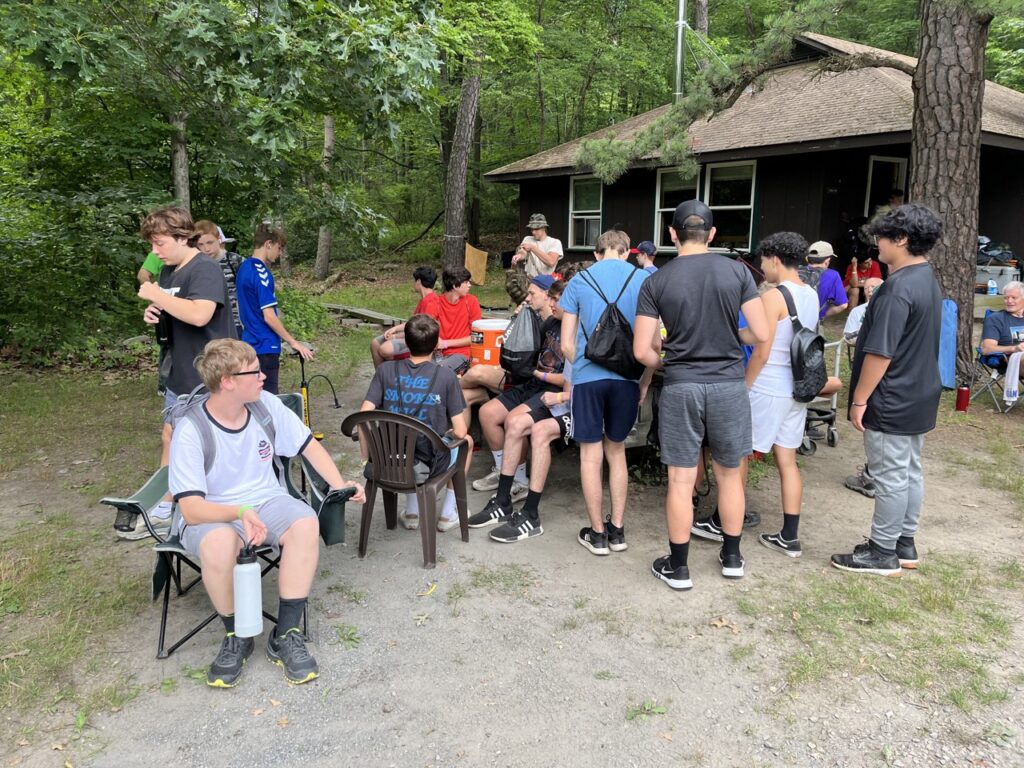Two weeks ago I had the opportunity to attend Young Women’s Camp and was struck by the unexpected lessons in leadership I learned. Last week, I was able to attend Young Men’s Camp and unsurprisingly walked away with more lessons in leadership. The setup is very similar, but the execution was very different. Male volunteer adult leaders spent just under a year working with a group of male youth between the ages of 11 and 17 to plan a camp.

While spending a week in the very muggy woods with 50 very energetic teenage boys, here are 10 more lessons in leadership I learned.
1. To get the best out of others, they must know you care
You can yell, you can beg, you can hold hands, you can set the example, but until others know you truly care about them, there is a risk they simply tune you out. Never is this more true than when trying to get a group of teenage boys that have been assigned to cleaning duty to clean up after a particularly messy meal.
2. Different techniques for different people
Good leaders know their strengths and preferred leadership styles and utilize them with expertise. Great leaders apply different styles to different situations and people. What works to get one 15 year-old to do a hard task will most likely simply elicit an eye roll from the next.
3. Have high expectations of others
Leaders are not cruise directors whose job is to make sure everyone is having fun. Leaders expect the best out of everyone, and they help bring out that best as well. A 6-mile hike in the heat up some pretty steep, rocky terrain? Even though some had never walked that far, let alone hiked that far, and maybe even didn’t have the right gear, the leaders didn’t let the boys settle for the easy way out.

4. Give honest feedback
High expectations are not always met. And when they aren’t, clear, concise, constructive feedback is often needed to get things back on track. The most effective leaders don’t shy away from these conversations, and they handle them in such a way that it leaves the receiver feeling motivated to do better.
5. Don’t do for others what they can do for themselves
Many times (but not always), leaders really can do the job better or faster than those reporting to them. But leaders lean into development opportunities; they allow others to stretch, to grow, and yes, to fail sometimes. And when they do, they help the person get back up and try again. Even if that means sometimes a camp meal is nothing more than that: a meal prepared by a 14 year-old with no cooking skills.
6. Take ownership
Strong leaders step up and employ the mantra “the buck stops here.” It’s easy to blame others, processes, systems, the economy, competitors, the market, etc. But real leaders take ownership for problems. Like when a particular rowdy group of boys broke off a water spicket and flooded a cabin at 11:00 pm. It would have been real easy for the leader to throw the boys under the bus. But the volunteer camp director was the one to get out of bed, call the camp maintenance team, and deal with a particularly unhappy facilities team in the middle of the night.

7. Lean into problems
Not only do leaders take ownership, they lean into problems instead of avoiding them. Nobody is perfect, no team is perfect, no situation is perfect. While leaders don’t need to be about fault finding, they should readily identify risks and problems and work with the team to address those issues.
8. Eat last
Cliché as it may have become, true leaders really do eat last. They make sure everyone else is taken care of before they take care of themselves. Sometimes that means a cold steak, or no steak, but a leader puts their team ahead of themselves.

9. Have patience (sometimes lots and lots and lots of patience)
Most people get up every day and genuinely want to do a good job. They may just have wildly different ideas or approaches as to how to do that job. Patience allows a leader to see the positive intent and work through differences of opinions. And whenever you are stuck in the woods with 50 rambunctious teenage boys, patience is needed in spades.
10. Leaders can lose their patience. And leaders can say sorry
Leaders are not perfect. As much as we wish we were, we’re still human. We can lose our temper. We can get frustrated. We can come down a little too hard on deviant behavior. And when we do, we can recognize we were wrong and apologize. Teams know when their leader is wrong. They know when the leader crosses the line. Weak leaders ignore those mistakes or hide behind their title. Strong leaders admit their fault, acknowledge their weakness, ask for forgiveness, and find a way to move forward. It’s not perfection we are striving for in ourselves, or ask of others, it’s improvement. And the best leaders and teams find ways to improve each and every day.
